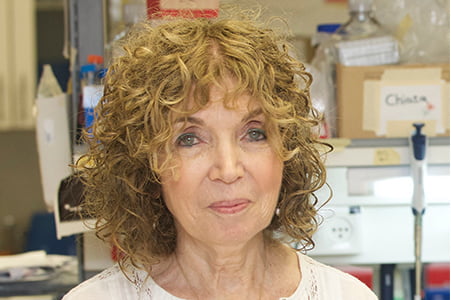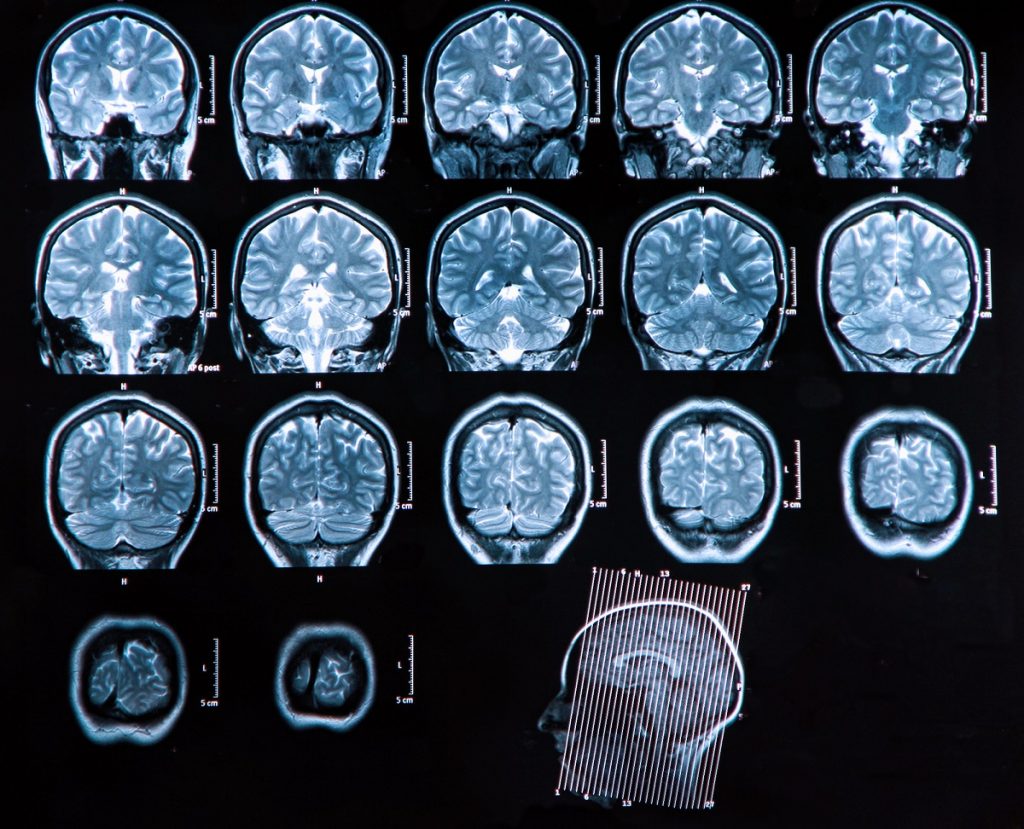A groundbreaking antibody treatment for Alzheimer’s disease developed by an Israeli scientist is currently headed toward a Phase I clinical trial. If successful, the treatment could become a game-changer for the disorder, modifying its course and preventing its progression.
The therapy, developed by ImmunoBrain Checkpoint (IBC), a biopharmaceutical company focused on immunotherapies for neurodegenerative diseases like Alzheimer’s, is based on over 20 years of research from a team at Weizmann Institute of Science headed by Professor Michal Schwartz of the Department of Neurobiology.

Prof. Schwartz pioneered the idea that the brain engages in a life-long healthy dialogue with the immune system for its maintenance and repair. The brain needs the immune system to function, she tells NoCamels.
“I was the first one in the world to say that the immune system is needed, but this was [for] acute injury at the time,” she said noting that the discovery was first published in the prestigious Nature Medicine in 1998.
SEE ALSO: Oxygen Therapy Can Ease Symptoms Of Alzheimer’s Disease
Her team established the pivotal role of the systemic immune system in healthy brain function and repair. Specifically, the team demonstrated that both monocytes and T cells are needed for repair of injured CNS tissues. Prof. Schwartz says this is what led her team to make the discovery that the role of the immune system is imperative in maintaining brain health.
“A major discovery which helped us move on towards Alzheimer’s was made by my team in 2004 and 2006 where we discovered for the first time that brain function — brain plasticity, cognitive ability, and many other functions of the brain — is dependent on the integrity of the immune system,” she says. “This was a big surprise because the immune system is not part of the network of the brain.”
Based on this research, ImmunoBrain Checkpoint, founded in 2016, engineered an antibody that would be used to activate the immune system.
The Phase I trial will test the company’s proprietary antibody, IBC-Ab002, to enhance the immune system and induce brain repair processes in individuals with Alzheimer’s disease.

Schwartz’s team has demonstrated that loosening the restraints from the immune system using antibodies that target inhibitory immune checkpoints (commonly expressed by exhausted immune cells), can rewire brain/immune communication, and thereby protect the brain from functional loss.
In September, ImmunoBrain Checkpoint won a $1 million grant from the Alzheimer’s Association under the 2020 Part the Cloud-Bill Gates Partnership Grant Program to support the upcoming Phase I trial.
IBC plans to start its first in-human trial in the fourth quarter of 2021 in patients with early Alzheimer’s disease.
ImmunoBrain Checkpoint “emerged” from the lab of Prof. Schwartz after the company contacted Schwartz and licensed her technology through Yeda, the commercialization arm of the Weizmann Institute.
While Prof. Schwartz’s studies provided the basis for her recent development of this novel immunotherapy, the new approach was able to reduce symptoms and even reverse the cognitive loss in mouse models of Alzheimer’s disease.
Sign up for our free weekly newsletter
Subscribe“Seeing the robustness of the effect in so many animal models and on both symptoms and disease pathology, reinforces my optimism that we are activating a general mechanism needed for brain repair in these devastating conditions that will overcome the multifactorial and heterogeneity of Alzheimer’s disease,” says Prof. Schwartz.
“What is interesting is that as long as there is an effect on cognition, there is an effect on the disease pathology which is mainly manifested by the reduced pathology (development of the disease),” she tells NoCamels. “And we tested this in models of dementia, in models of Alzheimer’s — it basically works in all modeling. “
“And this is why our technology is more advantageous [than others] because it doesn’t depend on what causes the disease. We are improving the repair mechanism, rather than just removing a single type of a waste,” she adds.
Alzheimer’s treatment
Alzheimer’s disease involves degeneration in the central nervous system. The disease, a slow and ongoing degeneration of nerve cells in the brain expressed by a sharp decline in cognitive abilities, especially memory, was first described by the German psychiatrist and neuropathologist Alois Alzheimer in 1906 and was named after him.
Currently, there are no approved therapies for Alzheimer’s disease that can change its course. Prof. Schwartz says any current treatments are symptomatic ones targeting Alzheimer’s symptoms including the ones that are currently available after being developed at the Alzheimer’s treatment center in the Department of Neurology at Hadassah University Hospital in Jerusalem.
“The treatment doesn’t change the course of the disease,” she explains to NoCamels. “I would say more accurately that there is no treatment that changes the course of the disease.”

IBC’s therapeutic approach focuses on potentially finding a way to modify the course of the disease by “activating a common pathway of repair, rather than neutralizing some, but not all of the toxicity, which can vary from one person to another,” Prof. Schwartz says.
The antibody “is almost ready for clinical trial,” Prof. Schwartz says. While the company has preliminary data that show the potential of a safety profile, it still has to complete a toxicology study in monkeys and the submission of documents to the US Food and Drug Administration.
The company is now in a stage of raising money, but Prof. Schwartz admits the current coronavirus pandemic has made it difficult. The company “has already raised several million” and needs about $9 to $10 million to begin the clinical trial.
“I think this approach can be used to combat other neurodegenerative diseases,” Prof. Schwartz says, noting she would like to see it used on ALS and Lou Gehrig’s disease. “I’m quite optimistic.”
SEE ALSO: Experimental Alzheimer’s Drug May Help Kids With Autism, Says Leading Israeli Neuroscientist
Prof. Michal Schwartz is renowned for her revolutionary contributions to brain research. Her research in neuroimmunology has changed the long-held belief that the brain is completely isolated from the immune system by the blood-brain barrier. Her findings have had widespread implications for understanding the mystery of brain diseases, a variety of mental illnesses, and neurodegenerative conditions.
Prof. Schwartz is a 2019 recipient of the EMET Prize in Life Sciences Bio-Medicine Award, given in Israel by the A.M.N. Foundation. She was honored for her groundbreaking biomedical research.
Related posts

Israeli Medical Technologies That Could Change The World

Harnessing Our Own Bodies For Side Effect-Free Weight Loss

Missing Protein Could Unlock Treatment For Aggressive Lung Cancer




Facebook comments